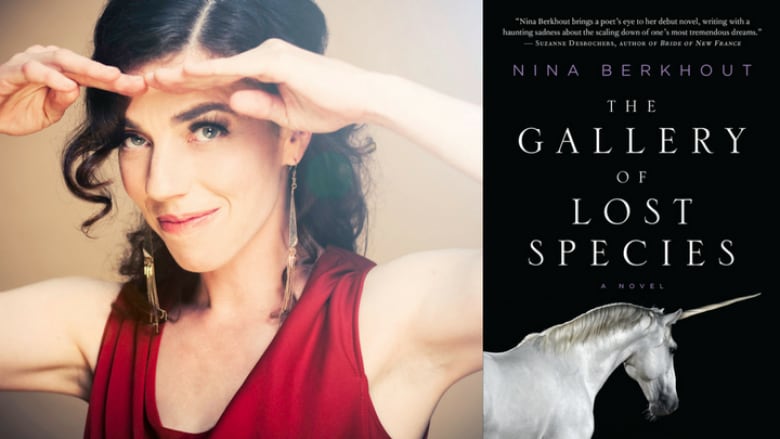Why Treasa Levasseur loved The Gallery of Lost Species by Nina Berkhout

In her life as a musician, Treasa Levasseur has spent lots of time on the road performing across the country. That's one way she's seen Canada, but she also seeks out books that feature those cities and towns in fictional form.
Levasseur talks to Shelagh Rogers about Nina Berkhout's Ottawa-set debut novel The Gallery of Lost Species.
This interview originally aired on Nov. 6, 2017.
Nina Berkhout's vivid images
"Edith, the protagonist, winds up getting work at the National Art Gallery. Her father was a failed artist and her sister is an artist. She becomes a conservator of sorts, archiving data. In the novel, the gallery becomes a refuge for our main character and a playground of metaphor for the story. Nina Berkhout is originally a poet and you can hear her poet's voice as you see the art pieces through her eyes. I read this on my e-reader and I have to say that the experience of reading this was so great because it haslinks to all of the art pieces mentioned in the book. You can amplify her descriptions with your own experience of these paintings."
Bonds that cannot be broken
"At the core of this book is the unwavering allegiance between siblings that sometimes even parents don't understand — this loyalty or sense of duty that supersedes any conflict you might have with that person. Edith really wants to save her sister, Viv, from addiction. A large portion of the book has her realizing that she's not going to be able to do that. It sees her contending with the sense of loss that comes with being unable to turn that allegiance into heroic victory."
Revisiting worlds we inhabited
"Berkhout talks a lot about lost worlds. For instance, Edith meets a cryptozoologist who studies yetis and other animals that may or may not have existed. Through this, she talks about the unreachable and what is lost — traces of things. Each time I read it I found it surprising and beautiful, like turning a corner in an art gallery and seeing a piece that you've never seen before that really pulls you in for whatever reason on that day."
Treasa Levasseur's comments have been edited and condensed.